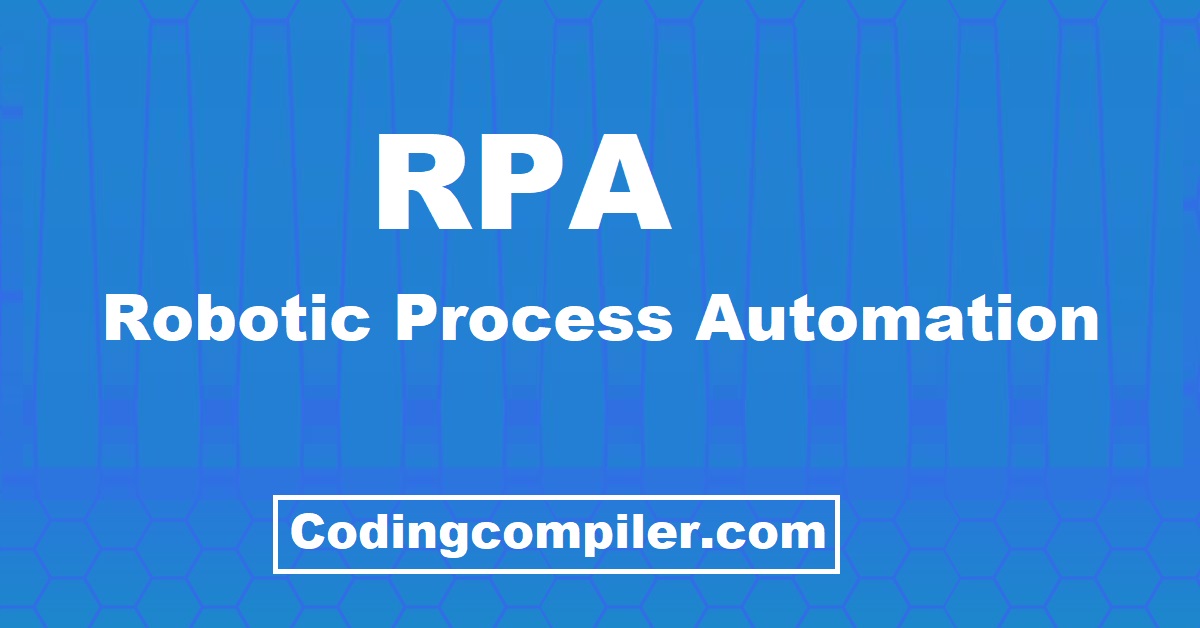Benefits of Robotic Process Automation – Robotic Process Automation Benefits. Here in this blog post coding compiler will discuss on how an organization can efficiently and accurately implement automation processes with the help of Robotic Process Automation (RPA) and what are the Benefits of RPA.
Benefits of Robotic Process Automation
What can RPA do for Organizations?
- RPA Delivering Digital Transformation where it matters.
- RPA allows work to be done much more quickly and accurately,
- Reduces costs,
- Improves efficiency and lays the groundwork for an improved customer experience.
You Should Read This: Introduction to Robotic Process Automation
In the near future, we will see machines taking a more active role in enhancing human endeavors and renovating the customer experience with RPA will become a digital priority.
Robotic Process Automation Benefits
- Increase efficiency
- 100% accuracy
- 24×7 productivity
- Improve customer experience
- Enhance visibility
- Improve time to market
- Comply with industry regulations
- Accelerate digital transformation programmes
- Reduce costs
- Speed up process time
- Boost scalability
- Optimise resources
Benefits of Robotic Process Automation (RPA)
Today, companies in many sectors are already applying RPA, in order to transform customer services, financial performance and improve compliance. They expect RPA to drive productivity by automating transactional tasks and to increase profitability by gleaning relevant business information from unstructured operational data.
Related Article For You: Know The Reality of Robotic Process Automation
Robotic Process Automation is expected to save companies 50-70% on labor costs by making intelligent use of resources, near-zero error rates, improved compliance and reduced process cycle time. And RPA doesn’t always mean redundancy. RPA allows employees to focus on only jobs humans can do; strategy, creativity and connecting with people.
The key to delivering rapid automation success is finding the right balance between technology and skilled staff. With Virtual Workers managing structured process execution, human resources can be focused on activities that add greater business value. That’s better for staff, better for business efficiency, and also provides an improved customer experience.
Robotic Process Automation Case Studies
- RPA Case Study – Customer Service & Support
- RPA Case Study – Data Migration & Management
- RPA Use Case in IT And Infrastructure
- Robotic Process Automation in Human Resources
- RPA Case Study – Digital Online Initiatives
- RPA Case Study – Back Office Administration
RPA Tools Interview Questions
Want to learn Robotic Process Automation from industry experts?

